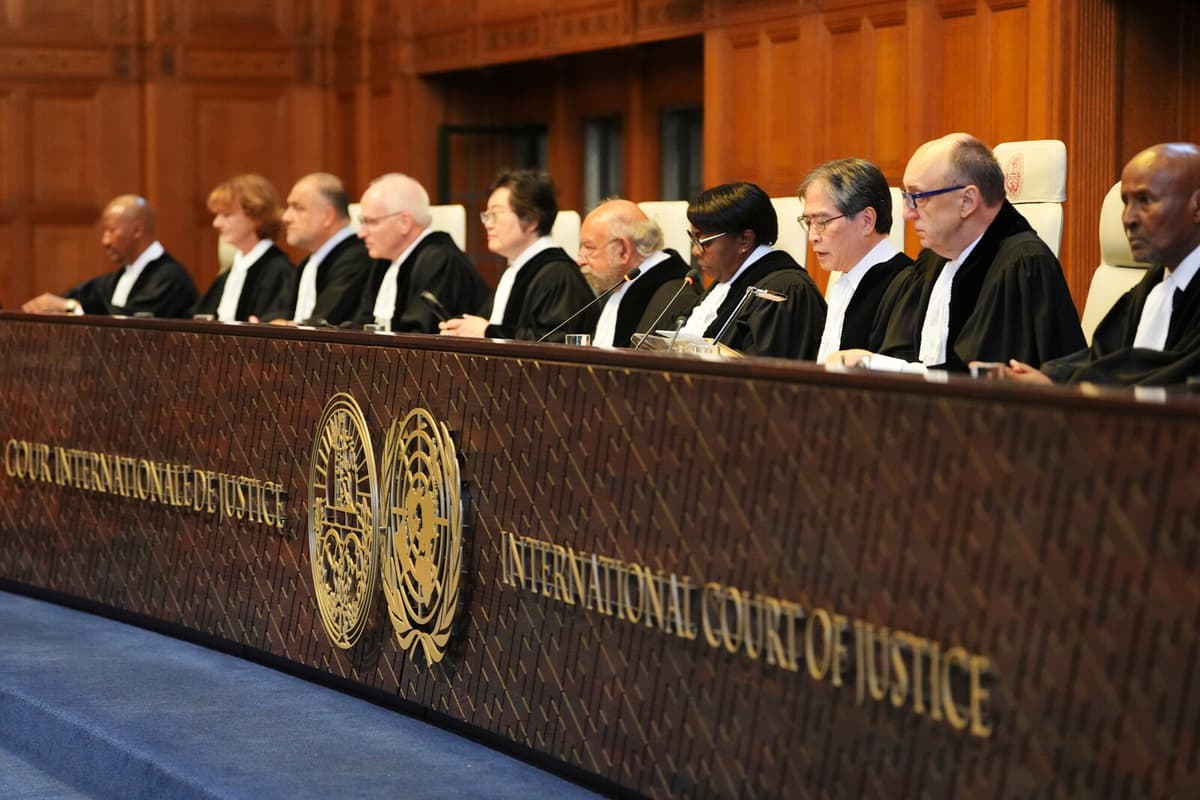A clean, healthy and sustainable environment is a human right, says the court's chairman Yuji Iwasawa when he presents the ICJ's statement at the headquarters in the Dutch city of The Hague on Wednesday.
The issue of damages would, according to the court, need to be tried on a case-by-case basis. A prerequisite is that one succeeds in establishing "sufficient direct and special causal connection".
The ICJ's statement comes after the UN General Assembly in March 2023, after years of pressure, turned to the court with the question of what obligations the world's states can be considered to have to protect the climate and the environment from emissions of greenhouse gases - and what legal consequences this may have.
Possible damages
Small island nations in Oceania, for which rising sea levels pose an existential threat, have taken the lead in the historic case, which is supported by over 130 countries. The hope has been that the ICJ will establish that climate destruction is illegal and that rich countries with high emissions must take the greatest responsibility for the green transition.
This is also what they do.
According to the ICJ, inadequate climate work can violate international law. In addition, they believe that rich industrialized countries, including Sweden and the rest of the EU, have "special obligations to take the initiative in the fight against climate change". This includes limiting their emissions of greenhouse gases.
The court's statement, a so-called advisory opinion, is not binding. However, it is more than a symbolic act, as it can provide a basis for future legal actions, such as lawsuits, in various countries.
Swedish example
A Swedish example can be found in the Aurora case, where the organization Aurora sued the Swedish government for what it claims is inadequate climate work. The Supreme Court announced in February that the case cannot be tried in a Swedish court, but opened up the possibility that a differently designed climate lawsuit could be taken up in the future.
Aurora is preparing to file a new lawsuit against the Swedish state.
Corrected version: In an earlier version of the text, there were incorrect information about Aurora's new lawsuit.
Facts: The International Court of Justice in The Hague (ICJ)
TT
The International Court of Justice in The Hague is the UN's judicial body. It was established in June 1945, and began its activities in April the following year.
The court consists of 15 judges who are elected by the UN General Assembly and the UN Security Council for nine-year periods. In March 2023, the General Assembly asked the ICJ for advice on two issues:
What obligations do countries have to protect the climate and the environment from harmful, human-caused greenhouse gas emissions - and what will be the legal consequences for governments whose actions, or lack thereof, harm the climate and the environment.
Source: ICJ, AP






